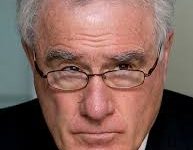1989: The Palmer Interlude
May 21, 2020
By AHNZ
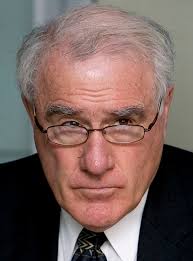 Geoffrey Palmer was the second of the three Labour 4.0 Prime Ministers, taking over after David Lange quit until Mike Moore was deployed to fight the 1990 General Election. Palmer’s Ministry lasted just 11 months (August 1989-September 1990) during which a great deal occurred that might have helped him, and his Government, win re-election. Labour decided that was not going to happen and changed horses mid-stream, putting the short-fused grenade into Prime Minister Moore’s willing hands only for it to blow up in his face after a term of 59 days.
Geoffrey Palmer was the second of the three Labour 4.0 Prime Ministers, taking over after David Lange quit until Mike Moore was deployed to fight the 1990 General Election. Palmer’s Ministry lasted just 11 months (August 1989-September 1990) during which a great deal occurred that might have helped him, and his Government, win re-election. Labour decided that was not going to happen and changed horses mid-stream, putting the short-fused grenade into Prime Minister Moore’s willing hands only for it to blow up in his face after a term of 59 days.
Unbridled Palmer
Geoffrey is one of the last of the Silent Generation, thus endowed with the natural traits of abstract imaginative thinking that would allow his developing The Legal Mind. He was born too early to be a Baby Boomer and be infected with their almost narcissistic self-entitlement complex and instead has an old-fashioned notion of being of service to wider society. At university, Palmer specialised in Public Law having shot out of Nelson powered by academic talent all the way to tenured professorship in the United States. By the end of the 1960s he was set for life and could have coasted. Instead, he came home to New Zealand.
 Palmer, now a law prof back home at Victoria University, was one of the respectable supporters listed in the Citizens for Rowling campaign of 1975. It was supposed to look like an authentic grass-roots outpouring of support for the then Labour 3.0 Prime Minister Bill Rowling but was soon exposed as a case of Astroturfing.
Palmer, now a law prof back home at Victoria University, was one of the respectable supporters listed in the Citizens for Rowling campaign of 1975. It was supposed to look like an authentic grass-roots outpouring of support for the then Labour 3.0 Prime Minister Bill Rowling but was soon exposed as a case of Astroturfing.
Then, on 18 August, 1979, when the safe Labour seat of Christchurch Central came up for grabs in a Buy Election it was Palmer’s opportunity to get into politics. After his on-the-job training during Muldoon’s National 3.0, Palmer was ready when Lange’s Labour 4.0 came stomping into power. As with his fellow Ministers, Palmer’s will was unbridled and he painted the country with the improvements he had long dreamt of.
“I had a very safe seat..a glittering prize in politics..in those days of First Past the Post.”- Palmer, The 9th Floor (2017); RNZ
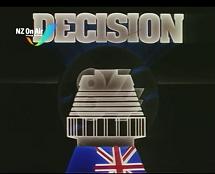 Palmer was now Attorney-General and Minister of Justice and Deputy Prime Minister for Labour 4.0. In a very short space of time, Professor Geoff had quickly become one of the most powerful men in New Zealand. As part of the 1984 campaign, Palmer re-released his constitutional blockbuster Unbridled Power? He also headed a Royal Commission on electoral reform that directly led to the change to the Mixed Member Proportional (MMP) system. Palmer was behind the fairly impressive Bill of Rights Act (1990) but also responsible for Section 4 which makes the entire law a simple nullity…
Palmer was now Attorney-General and Minister of Justice and Deputy Prime Minister for Labour 4.0. In a very short space of time, Professor Geoff had quickly become one of the most powerful men in New Zealand. As part of the 1984 campaign, Palmer re-released his constitutional blockbuster Unbridled Power? He also headed a Royal Commission on electoral reform that directly led to the change to the Mixed Member Proportional (MMP) system. Palmer was behind the fairly impressive Bill of Rights Act (1990) but also responsible for Section 4 which makes the entire law a simple nullity…
4. Other enactments not affected-No court shall, in
relation to any enactment (whether passed or made before or
after the commencement of this Bill of Rights),-
(a) Hold any provision of the enactment to be impliedly
repealed or revoked, or to be in any way invalid or
ineffective; or
(b) Decline to apply any provision of the enactmentby
reason only that the provision is inconsistent with any
provision of this Bill of Rights.
Palmer rolled out the Treaty of Waitangi Amendment Act (1985) which opened up an entire Treaty Grievance Industry all the way back to 1840. Can of worms open.
Palmer created the notorious Resource Management Act, dribbled it to the end of the field, all the way to Select Committee stage before half-time was called in the form of General Election 1990. But, then, National 5.0 capitalised on Palmer’s RMA by kicking the ball (already in play) through the goalposts that were now theirs. Can of worms open.
Palmer also delivered the State Owned Enterprises Act (1986) that elevated The Treaty of Waitangi to constitutional status that made all Government departments act in deference to The Treaty. Worse, it left the meaning of the so-called ‘principles’ blank so that they would have to be invented later, on the fly. Can of worms open and worms given roller skates.
Just as Roger Douglas made the economy his play thing, Palmer was treating the constitutional fabric of our society like his personal vanity project screen play with himself as soul writer and director. It was his lifelong dream come true. And then the one thing came along that could stop him…
Palmer: I must say that I found being the leader a nuisance.
Guyon Espiner: A nuisance? You found being the Prime Minister of New Zealand a nuisance?
Palmer: I did².
….he became Prime Minister.
The Palmer Interlude
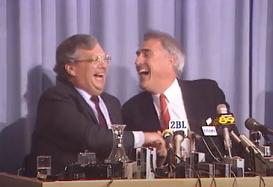 Lange’s Prime Ministership fit an Honour Culture period in our history. Rough, brutal, charismatic, laying down the law on what they had to do and not asking twice for the mandate to do it. By 1989, of course, New Zealand was well into a Dignity Culture era¹ and the HC heavyweights of Lange and his Minister of Finance Roger Douglas had cancelled each other out acrimoniously. Palmer was the Dignity Culture PM. The polite man, the law professor, the intellectual giant, the academic gentleman, the dispassionate measured mind. Dignity Culture’s major deriving characteristics are that it is Structural rather than Personal and Abstract rather than Concrete. Geoffrey Palmer is Dignity Culture incarnate.
Lange’s Prime Ministership fit an Honour Culture period in our history. Rough, brutal, charismatic, laying down the law on what they had to do and not asking twice for the mandate to do it. By 1989, of course, New Zealand was well into a Dignity Culture era¹ and the HC heavyweights of Lange and his Minister of Finance Roger Douglas had cancelled each other out acrimoniously. Palmer was the Dignity Culture PM. The polite man, the law professor, the intellectual giant, the academic gentleman, the dispassionate measured mind. Dignity Culture’s major deriving characteristics are that it is Structural rather than Personal and Abstract rather than Concrete. Geoffrey Palmer is Dignity Culture incarnate.
“A man with too measured a mind to be a leader”- McLauchlan (2012)
 Prime Minister Palmer came romping into the General Election of 1990 with all sorts of winning booster rockets. He would be associated with the new New Zealand, our futuristic new 1990s decade with Sunday Trading and an exciting new media frontier that now would include TV3. January and February kept the masses chipper with the This Is The Moment Auckland Commonwealth Games. Queen Elizabeth came down to visit and tour the country. Kiri Te Kanawa came home and gave a massive Dignity Culture concert. Rachel Hunter ate Trumpet ice creams on TV for Tip Top. The hits kept coming!
Prime Minister Palmer came romping into the General Election of 1990 with all sorts of winning booster rockets. He would be associated with the new New Zealand, our futuristic new 1990s decade with Sunday Trading and an exciting new media frontier that now would include TV3. January and February kept the masses chipper with the This Is The Moment Auckland Commonwealth Games. Queen Elizabeth came down to visit and tour the country. Kiri Te Kanawa came home and gave a massive Dignity Culture concert. Rachel Hunter ate Trumpet ice creams on TV for Tip Top. The hits kept coming!
 Not to mention, 1990 was a massive national sesquicentennial anniversary. Thanks to Palmer, among others, history had been retconed so that our nation was apparently born with the Treaty of Waitangi on 6 February. This anniversary landed neatly on February 6th in the year of the election.
Not to mention, 1990 was a massive national sesquicentennial anniversary. Thanks to Palmer, among others, history had been retconed so that our nation was apparently born with the Treaty of Waitangi on 6 February. This anniversary landed neatly on February 6th in the year of the election.
The national celebration also had a mascot in the form of Kuki Kea complete with iconic black singlet, Maori headband, black gumboots, and the 1990 logo. You can still see some of these soft toys around the second hand shops and the original came with his own birth certificate. As I recall, there was a travelling futuristic expo with 3 huge tents that showcased New Zealand’s past, present and future.
Truly, The Palmer Interlude had every razzle dazzle under the sun to help it carry over and win the General Election. They even took inspiration from Prime Minister Joseph Ward who famously, out of the blue, purchased a dreadnought battleship to flatter the nation as an election bribe. Palmer pulled a Ward and commissioned two Anzac-class frigates which are still with us today, HMNZS Te Kaha and HMNZS Te Mana.
Despite all this planning, all this momentum, all these sensations, Labour 4.0 saw their polling results and freaked out about losing their MHR seats. On September 4th, 1990, leadership of the party and Prime Ministership passed to Mike Moore. The Palmer Interlude was done and Geoffrey then resigned from parliament entirely.
After Parliament
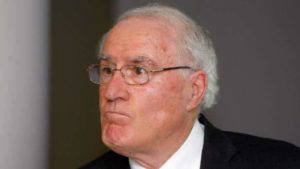 Geoffrey Palmer is still with us and active today, poking his head up from time to time and usually as part of his grand project to give us a new and written constitution. His.
Geoffrey Palmer is still with us and active today, poking his head up from time to time and usually as part of his grand project to give us a new and written constitution. His.
Not two years ago, Palmer was trying to help Labour 6.0 transform the compulsory Government health insurance scheme, Accident Compensation Corporation (ACC,) on the grounds that it discriminated in favour of people who had actual accidents.
After serving in office, Palmer set himself up as perhaps the first and certainly most prestigious Public Law firm in New Zealand. This was Chen Palmer & Partners (est 1994.) Still, he finds time to champion the then (ie before 2020) fashionable cause of Global Warming.
Palmer was interviewed in the Radio New Zealand series The 9th Floor in 2017 and stood by the comments he made in an earlier book, Reform : A Memoir…
“Our constitutional moment has never arrived. We stand, as my son Matthew has written, ‘gloriously but virtually alone among democracies.’. That feature has worried me for many years. It poses dangers to the peace, order and good government of New Zealand if demagogues take over, civil unrest develops and continues, or other emergencies precipitated by natural disasters occur. Democracy is more fragile than many realise.”– Geoffrey Palmer, Reform : A Memoir (2013)
One striking thing was to hear his constitutional concerns about the potential for a demagogue to take over the country should an emergency strike. There are some great points here but Palmer singles out US President Donald Trump while, in 2020, he had the following to say about PM Jacinda Ardern’s response in the COVID-19 crisis…
“The public policy response to the Covid-19 crisis has been a great and instructive success, and Jacinda Ardern has proven herself a class above all predecessors”– Geoffrey Palmer: Hallelujah! New Zealand government works
So it seems Palmer’s principles are more for hobbling the Right than for binding or even perceiving demagoguery in the Left.
It was also surreal to hear a politician concerned about the economic crisis and fiscal deficits at a time when our contemporary politicians seem to be actively seeking those things out!
One of the most striking things to me about Palmer is that he never had to work per se. Academia rewarded his natural talents and inclinations all the way to the top and when he became high priest of tort law there was nobody to compete with at his US post nor anyone in his class back home in New Zealand. Upon his return, he got a safe seat so never had to campaign to earn a mandate beyond flattering the Prime Minister. While other MHRs struggle for years or decades to make it to the Executive, Palmer slid right on in in the same way he breezed right into the Prime Minister’s Office without contest or competition. What empathy was possible for this Labour 4.0 politician with suffering? He certainly caused plenty.
—
1 Krypton Factor Dignity Culture; Ref. 1987: The Krypton Factor
2 Episode 1, c.45mins 30sec, The 9th Floor (2017); RNZ
Image ref. Palmer; GNHRE.org
Ref. 1972: Accident Compensation Corporation
This post is now a podcast. Listen here
 Like Comment Share
Like Comment Share


